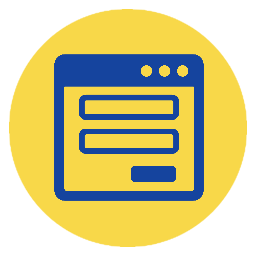Table of Contents
If you’re wondering why measurement in education is always the talk of everyone, even in the fine days of summer, you’ve come to the right place!
Measurement means a lot of things but above all it lets you enhance the overall educational movement based on the resulting analytics you get, the more accurate and detailed, the better!
However, that can’t be done without strong foundations and strategies, including the concept of modern curriculum, which includes a set of knowledge, skills, and directions planned by the school or educational institution.
There is a comprehensive growth for all students and directing their behavior based on educational goals needed by the individual and society.
For this process to be successful, it is important to carefully define goals and then identify ways to evaluate these goals, and measurement in education is an important way to achieve these goals.
Importance of measurement in education
Evaluation is important because it is a means of judging the effectiveness of the curriculum and academic content, through which the curriculum is developed and improved.
It is also a process that works to clarify the strengths and weaknesses of the curriculum and gives suggestions, alternatives, and solutions that can be used to improve and reform the content.
The evaluation and measurement process looks at all types materials and intangible elements, teaching methods, books, curricula, educational aids and activities, in addition to paying attention to the student’s knowledge, skills, and responsiveness to the academic content.
This process of measuring and evaluating begins with the formative evaluation and ends with the conclusion.
The first is applied during the curriculum, its implementation and explanation, or in the stages of training and preparation for a specific stage or test.
The second is the last, as it measures the final results after completing a stage and estimates the success of the content in reaching the student.
In 6 main points lies the importance of measurement in educational process

- Determining the Goals that Have Been Set
One of the most important and first steps in education is to set goals and define them clearly, and in order for the teacher to measure what has been achieved, appropriate evaluation and measurement methods must be used.
- Development and Improvement of Education
Measurement and evaluation contribute to improving student learning from various aspects. It helps the student, the teacher, and those involved in the educational process in identifying problems and working to solve them, clarifying what the student and teacher need of information and skills, and determining the extent of progress in what has been taught and learned.
- Diagnose the Problem and Find the Solution
The measurement process identifies the student’s strengths and weaknesses and his willingness to learn new things and receive multiple experiences and skills, thus strengthening the strengths and addressing the weaknesses.
- Categorizing Students Based on Measuring Their Skills
Where measurement and evaluation can clarify the appropriate disciplines for each student, scientific, literary, commercial, industrial, and so on.
- Providing Guidance and Instructions to Students
The educational counselor uses the results of measurement and evaluation to reach educational, guiding, and professional decisions for the student, as they provide him\her with a clear picture of the strengths and weaknesses. Thus the counseling process is better and more successful.
- Providing the Teacher, the Student, and the Whole System with Feedback
The measurement process gives clear reports and questionnaires on all aspects of learning, including academic content, teaching methods used by the teacher, and activities that take place, all of which is related to the educational process.
Types of Measurement in Education
Preliminary Measurement
Measurement or introductory assessment is used before starting any study program and aims to determine the extent of the student’s previous information and knowledge to start a new stage for which he is well qualified.
Structural Measurement (formative)
It is an organized process throughout the study period, where the teacher conducts continuous assessments on the course, and this type of measurement aims to know the extent to which goals and knowledge have been achieved after each lesson or unit of study, diagnosing topics and lessons that constitute difficulty for the student and quickly finding solutions to them, and modifying teaching methods To become more appropriate to the skills of the students.

Standard Measurement
This type of assessment compares the performance of the student with the performance of the rest of his colleagues on the same test, to explain the calculation of the average performance of the group of students and to know the criteria for increase or decrease based on this average.
For example, if a student scores 44 in a test, this score does not determine whether the student is superior or not!
But if we calculate the average score for the rest of the students, it can be determined if the 44 score is less than the average. Then this is a weak score, but if it is higher, it is a high score.
Level Measurement
This assessment determines the student’s level in relation to the test or a fixed, pre-determined level based on the behavioral and cognitive objectives of the course.
This type is commonly used recently because it is classified within the objective methods of judging the student’s level of knowledge and achievement. It judges the student in relation to themselves, their abilities, and their capabilities and not in relation to the abilities and capabilities of others.
It deals with individual differences among students in achievement, abilities, and skills because it depends on evaluating the student’s performance without the intervention of any other factors.
Measurement Tools in Education
- All kinds of tests
- Questionnaires
- Personal interviews
- Cumulative records
- Checking written work
- Reports and research
- Notes
Characteristics of Measurement in Education
- Oral exams
- Scientific performance tests and practical activities
- Written essay and objective exams
- Timed tests, which depend on speed in their performance, also called speed tests
- Short-answer or restricted-answer construction tests
- Scientific research exams
Limitations of Measurement in Education
Despite the advantages and importance of the measurement process, it has some limitations and problems
- The difficulty of developing an integrated test that measures all the student’s skills in an impartial and reliable manner.
- Cheating spread among students puts the measurement process in a big problem, as it is possible to attribute undeserved marks and grades to the student who cheated.
- The difficulty of extracting comprehensive results and reports that measure each question and each answer clearly and in detail.
Scope of Measurement in Education
The scope of educational measurement includes measurement of educational achievement, intelligence, interest, ability, aptitude, and other traits of students. Using methods, tests, tools, and activities to determine a student’s level and what he or she has learned and developed.
Steps of Measurement in Education
There are four steps in the measurement process:
- conceptually defining the construct
- operationally defining the construct
- implementing the measure
- and evaluating the measure
The perfect solution for all the desires of teachers and students is a choice that provides endless advantages to the educational system and the quality you are looking for.

Qorrect offers you a set of unique features, such as:
- An integrated system that facilitates the evaluation process from the beginning of establishing banks that accommodate an enormous number of questions, to the extraction of all results, reports and analyzes of the tests.
- Create balanced online exams and multiple forms, and store endless numbers of questions.
- Prevent fraud and provide a high security and protection system.
- He places in the educational institution’s hands detailed reports and data, which facilitates obtaining academic accreditation.
- It provides you with ease and flexibility in delivering exams to students, whether they are electronic or paper-based.
- It gives you comprehensive reports, real-time psychometric analysis, and stats on students’ answers to every question.
Need to discover more about all the features an e-assessment system can give you? Want to give your students a great educational process. Put your educational institution on the right academic accreditation path among many internationally accredited universities. Book a free demo now!
 Qorrect Blog
Qorrect Blog






